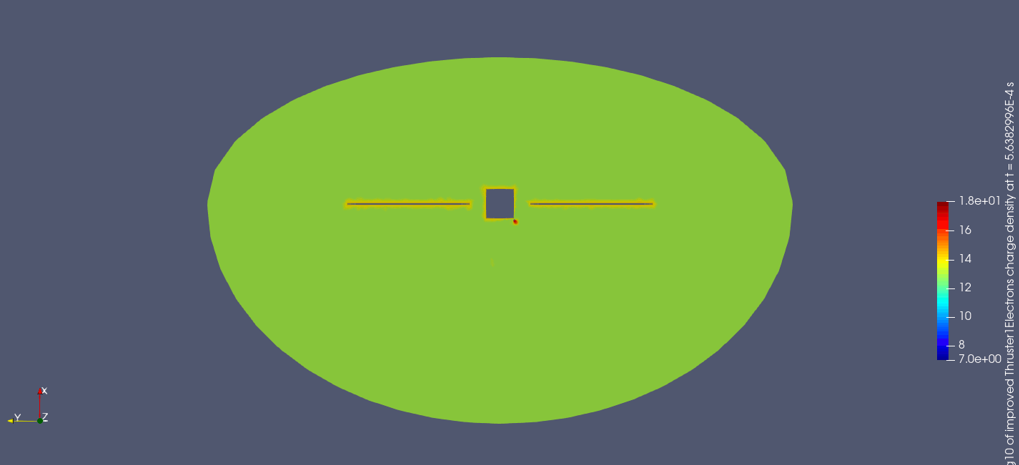The issue is already reported in the GitLab under spis/dev/num-plugins#2 (https://code.spis.org/spis/dev/num-plugins/-/issues/2) but copied here for broader audience:
Hello,
When defining a standalone cathode (not linked to an EP-Thruster) in the global parameters (“InteractorNB”=1,“InteractorType1”=Cathode, “CathodeDistribution”=…), the following electron distribution models produce an error:
-CathodePolytropicElectrons
-UC3MCathodeElectronModel
-SPT100CathodeElectronModel
Only the cathode model “CathodeAdiabaticElectrons” runs properly. The error message of the above 3 distributions is:
“Cathode potential: 0.0V
Time: 0.0, Dt = 1.0E-8 s
Thruster1_1_Xe advance: 43 particles out of 43 eliminated because could not compute trajectory (to compare to 43 injected particles)
Starts computing visibilities, may take a few minutes
Time to build tree 0 s
Duration :41.688
Thruster1_2_Xe++ advance: 11 particles out of 11 eliminated because could not compute trajectory (to compare to 11 injected particles)
Thruster1_3_Xe+ advance: 8 particles out of 8 eliminated because could not compute trajectory (to compare to 8 injected particles)
HV error: infinite current collection
HV error: infinite current collection
HV error: infinite current collection
HV error: infinite current collection
HV error: infinite current collection”
When the above three faulty distributions are not used with a stand-alone cathode but are instead directly linked to an EP-thruster in the groups editor, the simulations run without error, but the currents to the S/C are very high at the first simulation step. See the respective figure of the electron distribution at the first step here:

The final plasma distribution after convergence looks very strange with artefacts around the S/C surfaces.
It looks as if the above 3 cathode models are faulty or there are some necessary settings, which do not become clear from the SPIS documentation.
Thanks a lot for your support!
Jens